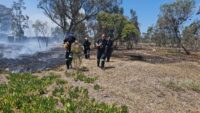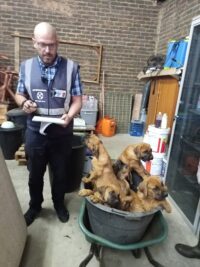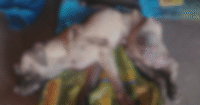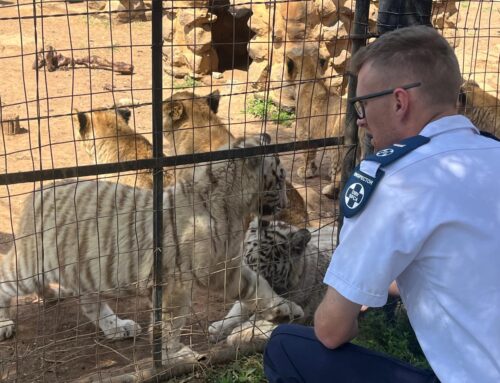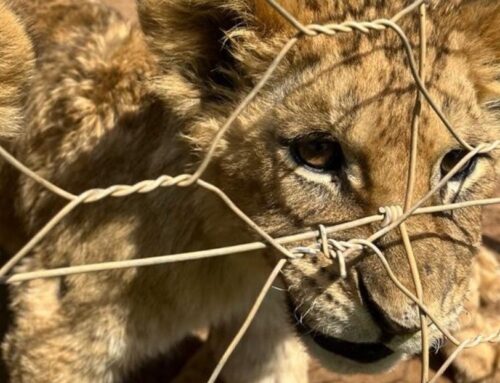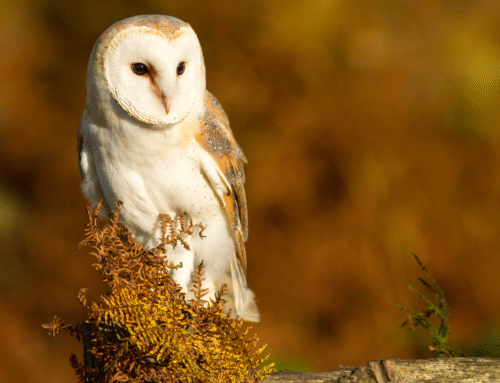NSPCA Supports Parliamentary Call For Legislative And Policy Review Of Captive Breeding Of Lion For Hunting And Lion Bone Trade
The NSPCA is elated by the call of the Environmental Parliamentary Committee for a Policy and Legislative Review of Captive Breeding for Hunting and Lion Bone Trade announced this week, along with a Report that has been tabled in Parliament and will be tabled for approval in the National House of Assembly.
In the Report, Chairman Mapulane stated: “It seems as if South Africa’s conservation reputation is being compromised by this practice which does not seem to benefit broader conservation but a small number of breeders without proper scientific or conservation basis. Another bone of contention is the breeding of lions for the lion bone trade.”
Growing local and international opposition to the captive breeding of lion for hunting and bone trade, resulted in the expulsion of South African hunting organisations from international conservation groups and calls to stop the captive breeding of lion went unheeded by South Africa. A 2 day Parliamentary Colloquium, in which the NSPCA participated, was called to interrogate the industry.
The NSPCA has, for many years, been concerned about and involved in addressing the welfare and conservation problems associated with the captive breeding of lion for hunting, cub petting, paying volunteers and lion walks. After being pulled from their mothers, the cubs are used and abused for tourism and, when too big, are hunted or slaughtered for lion bone. The lion bone is exported to Asia as a supplement for tiger bone in wines, tonic, traditional medicine and ornaments. There are currently about 8000 – 10000 lions in captivity.
In September 2018, the NSPCAs lodged an urgent interdict against the Department of Environmental Affairs (DEA) to suspend the DEA’s authorisation of lion bone exports.
Following decisions taken at CITES CoP17, the Minister of Environmental Affairs established an export quota of 800 skeletons for 2017. The NSPCA requested a judicial review of the quota and with the review process still grinding through the Courts, the DEA announced a 1,500 quota for 2018.
“A legislative and policy review of the captive breeding of lion is long overdue” said Karen Trendler, manager of the NSPCA Wildlife Trade & Trafficking Unit. “The captive breeding of lion is a brutal industry with no conservation value. The trade in lion bone could increase global demand putting not only wild African lion populations, but also tiger and other big cat populations at risk”
If you are as passionate about animals and their well-being as we are, consider supporting our causes by donating.
Latest News Posts
Will You Be the One Who Takes Action?
Most people will scroll past this. But will you be the one who stands up for animals?
Animal welfare isn’t always in the spotlight, but it changes lives – for every neglected, abused, or suffering animal we help. Our teams work tirelessly, often behind the scenes, ensuring animals across South Africa are protected.
This work is relentless. The challenges are immense. But with more hands, hearts, and resources, we can do even more.
The equation is simple: the more supporters we have, the greater our reach, the stronger our impact.
Be part of the change. Become an NSPCA Project Partner today. From just R50 per month, you can help ensure that no animal suffers in silence.

